Subaru engines are often noisy due to their flat-layout Boxer configuration, which can create a distinctive rumble. This design sometimes results in louder exhaust and mechanical sounds.
Subaru has garnered a unique position in the automotive world, largely due to its iconic Boxer engines. These engines are renowned for their horizontal layout, which contributes to the vehicle’s low center of gravity and enhances stability and handling. However, one characteristic often associated with Subaru’s engines is their noisiness.
The Boxer’s horizontal pistons move in opposition, which naturally generates more vibration and noise than other engine types. This, combined with the fact that Subarus typically have less sound insulation compared to luxury-oriented brands, can result in a louder cabin experience. Subaru enthusiasts often appreciate the distinctive sound, linking it to the performance and authenticity of their vehicles. Nevertheless, for potential buyers prioritizing a quiet ride, the acoustic qualities of Subaru engines are an important consideration.
Understanding The Subaru Boxer Engine
Subaru engines are known for their distinctive rumble, which is a byproduct of the unique horizontal layout and exhaust configuration of the Subaru Boxer engine. This design may lead to a louder engine noise compared to conventional engines, sparking curiosity among enthusiasts and drivers alike.
Explaining The Unique Design
- Opposing piston movement creates a natural balance.
- Lower center of gravity leads to better stability and handling.
- Symmetrical power delivery gives a smooth driving experience.
Benefits & drawbacks
Benefits & Drawbacks
Every design choice comes with its set of pros and cons, and the Subaru Boxer engine is no exception.
| Benefits | Drawbacks |
|---|---|
|
|
Factors Influencing Engine Noise
Subaru engines are renowned for their distinctive sound, but sometimes that characteristic rumble turns into an unwelcome noise. Understanding the factors influencing this engine noise can help Subaru owners identify and address the issue.
Noise from an engine can originate from multiple sources and vary depending on various conditions. Below, we dive into two key elements that contribute to engine noise in Subaru vehicles: the influence of engine coolant temperature and the throttle opening angle’s role in noise correlation.
Influence Of Engine Coolant Temperature
- Increased exhaust pressure: Colder engines emit higher exhaust pressure, leading to louder noise as gases escape the exhaust system.
- Lubricant viscosity: Oil thickens at lower temperatures, causing more resistance and louder mechanical noises until the engine reaches optimum temperature and the oil thins.
- Metal contraction: Engine components contract in cold conditions which can result in a temporary increase in noise levels until the parts expand with heat.
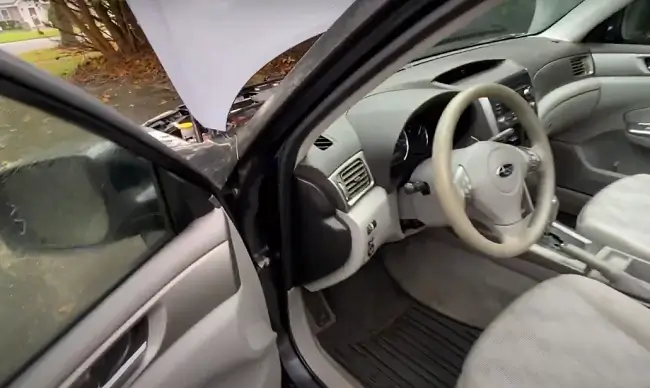
Throttle Opening Angle & Noise Correlation
- The wider the throttle opens, the more air enters the engine, leading to higher combustion activity and louder sound output.
- A rapid throttle opening results in a sudden burst of noise due to quick acceleration and high demand for power.
- At cruise or gentle acceleration, where the throttle opening is gradual, engine noise is typically reduced and more controlled.
Understanding these factors can help Subaru owners and enthusiasts discern why their vehicle’s engine may exhibit a noisier disposition under certain operating conditions.
Reasons Behind Noisiness
Many Subaru owners love their vehicles for their reliability and all-wheel-drive capabilities, yet some may have noticed a distinctive engine noise that can be both intriguing and unsettling. This auditory characteristic often becomes a point of discussion for those new to the brand.
Understanding why a Subaru’s engine might sound louder than others involves delving into the technical aspects of its design and operation. In the following sections, we’ll explore the core reasons behind the Subaru engine’s noisiness, lending insight into this unique automotive trait.
Release Of High Pressure Combustion Gases
- Horizontal piston movement: Unlike typical inline or V engines, the boxer engine’s pistons move horizontally, which can contribute to a more prominent expulsion of combustion gases.
- Exhaust design: Certain Subaru models have unequal length exhaust headers, which can amplify the sound as gases pulse unevenly through the system.
- High performance demands: Performance-oriented Subaru models that require high-pressure combustion to deliver the desired power output may exhibit more audible exhaust noise.
Impact Of Low Octane Fuel
- Knocking or pinging: These sounds indicate that fuel is igniting prematurely inside the engine’s cylinders, which can exacerbate engine noise.
- Recommended octane rating: Subaru engines are tuned to perform optimally with a specific octane rating. Deviating from this recommendation can cause a louder engine noise due to improper combustion.
- Engine strain: Using fuel that is below the required octane can lead to increased engine strain and thereby increase the audible feedback from the engine.
To mitigate these issues, it is crucial for Subaru owners to adhere to the recommended fuel specifications and octane ratings for their particular model to ensure quieter and more efficient engine performance.
Significance Of Noise
Subaru engines emit a distinctive rumble due to their boxer configuration, where pistons move laterally. This unique design contributes to the engine’s noteworthy auditory profile, often experienced as noisier than other engine types.
Special Characteristics Of Subaru Engines
- Horizontally Opposed Cylinders: Creates a signature rumble.
- Reduced Vibrations: Despite the noise, BOXER engines tend to produce fewer vibrations compared to other configurations due to their balanced design.
- Compact Layout: Allows for a sound that is more directly transmitted to the cabin.
Relationship To Engine Performance
Noise Reduction Techniques
Subaru engines, renowned for their durability and all-terrain capabilities, emit a distinct noise that some drivers find concerning. Recognizing this concern, exploring noise reduction techniques can enhance the driving experience for Subaru owners. This segment of the blog post covers practical methods to decrease engine noise, ensuring a quieter and more comfortable journey.
Maintenance Tips For Reducing Engine Noise
Regular maintenance is essential for keeping your Subaru’s engine noise at an optimal level. Here are actionable tips to maintain a quieter engine:
- Check and replace the oil regularly: Clean, adequate oil lubricates moving parts effectively, reducing friction and noise.
- Inspect belts and pulleys: Worn belts can produce a squealing noise. Regular inspections and timely replacements can prevent this.
- Use the correct octane fuel: Subaru engines are designed for specific octane ratings. Using lower octane fuel can cause knocking noises.
- Ensure proper timing belt tension: An improperly tensioned timing belt can result in a rattling sound from the engine.
Addressing Common Noisy Engine Issues
Tackling specific issues can significantly reduce the noise emanating from your Subaru’s engine. Common problems and solutions include:
- Exhaust system leaks: Check for breaches in the exhaust system that can result in louder engine sounds.
- Air intake system: A clogged or damaged air intake can increase engine noise. Regularly clean or replace air filters and inspect intake ducts.
- Engine mount wear: Damaged or worn-out engine mounts can lead to more engine vibration and sound.
- Valvetrain noise: Persistent clicking or ticking could indicate valvetrain issues. Consult a professional mechanic for assessment.
A combination of keen observation, prompt issue identification, and proper servicing routines can greatly help in keeping your Subaru’s engine quiet and efficient.

Credit: www.jdpower.com
Frequently Asked Questions
Why Do Subarus Make So Much Noise?
Subarus are often noisy due to their unique boxer engine design, which can create a distinctive rumble and vibration.
Why Do Subaru Engines Rumble?
Subaru engines rumble due to their unique horizontally-opposed ‘Boxer’ engine configuration, which creates a distinctive exhaust note.
Why Do Subarus Sound Like They Are Knocking?
Subarus may produce a knocking noise if using low-octane fuel below the recommended level, leading to premature detonation in the combustion chamber.
What Is So Special About Subaru Engine?
Subaru engines are distinct for their boxer configuration, which contributes to a lower center of gravity and enhanced balance, providing better handling and stability.
Wrapping Up
Wrapping up our journey into Subaru’s noisy engines, we discover it’s a blend of design and function. The distinctive rumble of the boxer engine is part of the Subaru signature. It reflects a commitment to performance even if it comes with extra decibels.
Regular maintenance can mitigate some noise, but for enthusiasts, the sound is just another reason to love their rugged Subarus. Embrace the growl, knowing it’s the heart of Subaru’s engineering prowess at work.

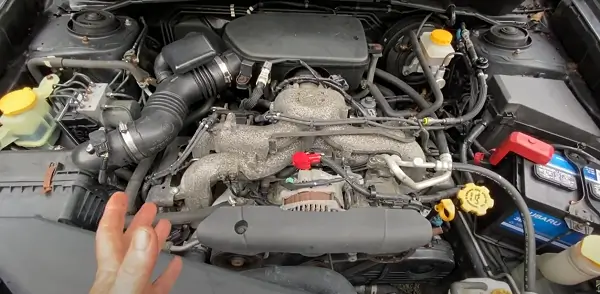
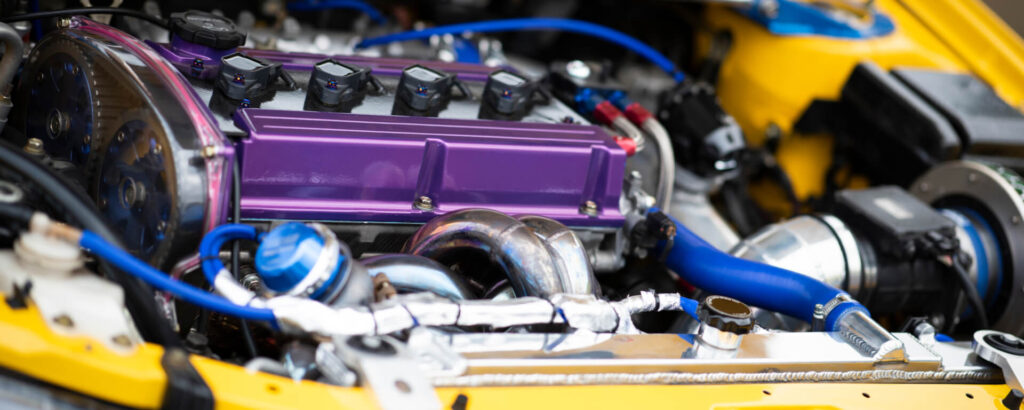
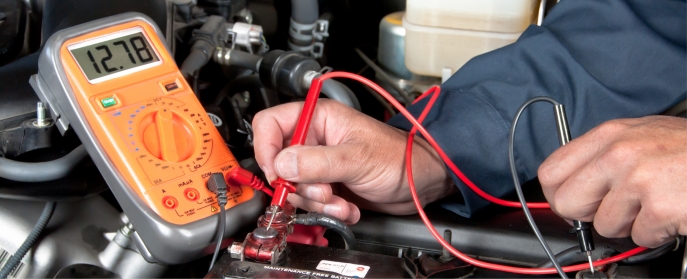
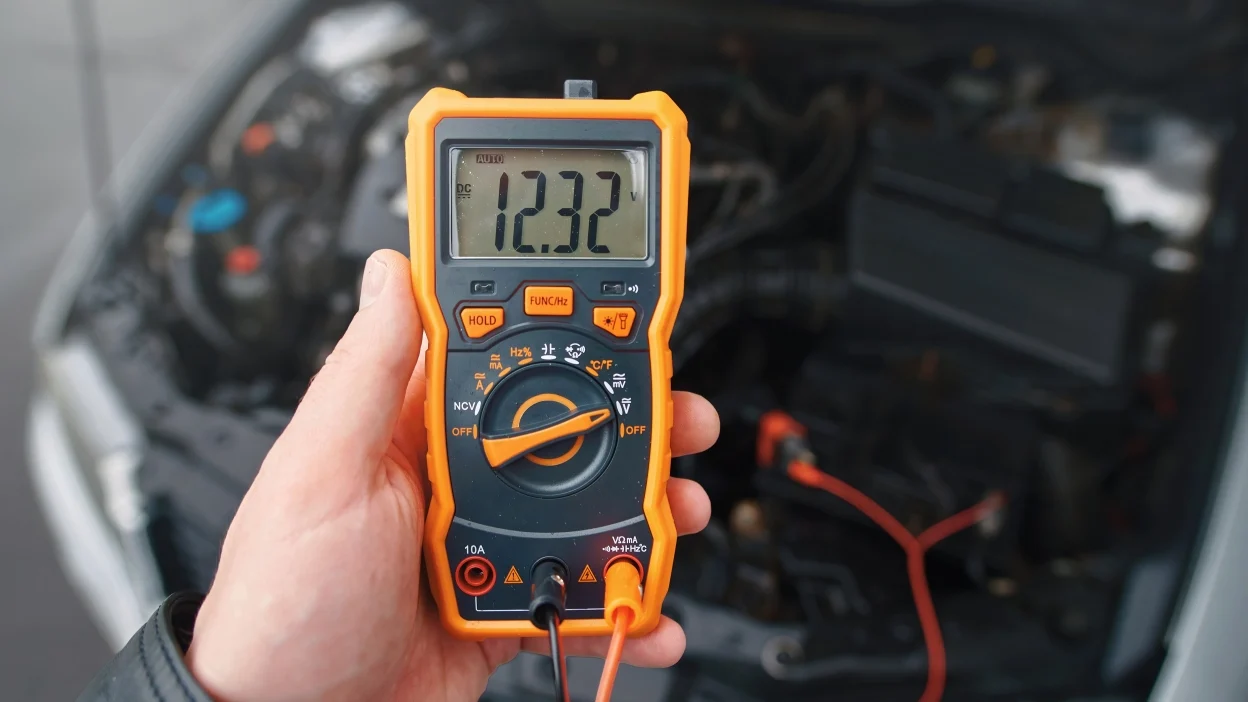
Leave a Reply